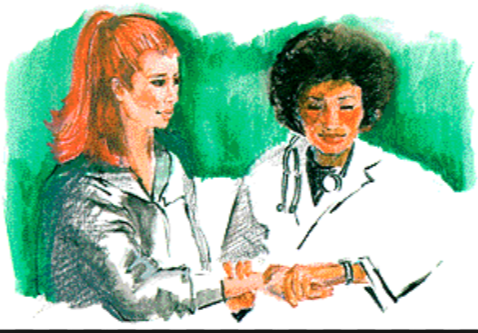If you’ve recovered from an addiction yourself and know of someone of the opposite sex who’s trying to recover from one now, you may not realize that the challenges of recovery can be different for men than they are for women.
This article, contributed by Mountainside Treatment Center, which has a location in Wilton, discusses what’s different (individuals will, of course, vary — this article discusses generalized group differences):
According to the National Institute on Drug Abuse (NIDA), men and women face similar odds of developing substance use disorders.
Despite this fact, women and men encounter unique hurdles in their efforts to achieve sobriety, due to several biological and social factors. Here are four ways addiction distinctly affects male and female substance users:
1. Addicted women are more stigmatized.
Society denounces addiction in general, but women typically face additional criticism for allowing drugs and alcohol to interfere with their stereotypical roles as caretakers. This uneven dynamic harms women and men alike.
Women sometimes avoid seeking treatment for alcoholism and drug addiction because they are wary about abandoning their family obligations or being judged by their peers.
- SEE ALSO: More Drinking, Alcoholism Among Women Now, and They Face Particular Risks (April 1)
On the other hand, NIDA discovered that male drug users have a greater chance of experiencing life-threatening overdoses because substance use and other risky behaviors are more accepted – and occasionally encouraged – among men.
Women encounter the negative effects of drugs and alcohol more quickly.
A 2016 study from the Journal of Neuroscience Research found that due to hormonal differences, women become addicted to drugs and alcohol more rapidly than their male counterparts.
Similarly, female drinkers are more susceptible to liver inflammation, heart disease, and alcoholism because certain factors — including weight, hormones, and a lack of body water — make it more difficult for women to metabolize alcohol.
Addicted women may also experience more severe cravings once they discontinue use and are more likely to relapse than men with substance use disorders.
3. More men struggle with addiction and co-occurring mental health disorders.
Although Post-Traumatic Stress Disorder and mood disorders predominantly impact women, research from the National Institute on Mental Healthshows that men are more likely to suffer from addiction in conjunction with another mental health condition.
Both genders may self-medicate with drugs and alcohol to cope with trauma or stress, but for men who attempted to conform to the societal pressures to appear “masculine,” the result is being more at risk of developing other mental illnesses.
“People who have spent years minimizing their emotions to themselves and others will have a smaller window of tolerance to feel the physical sensations that come from those emotions, resulting in limited behaviors that are variations of fight, flight, or freeze,” says Anthony Nave, senior manager of outpatient services at Mountainside treatment center.
“This can stand in the way of maintaining long-term recovery, having trust in their own ability to manage other mental health conditions, and feeling safe enough to start resolving traumatic memories that have led to PTSD symptoms.”
4.Women in recovery should build self-confidence, while men should prioritize healthy emotional expression.
Men and women can strengthen their recovery by participating in group sessions that support open communication among those of the same gender, covering topics such as family dynamics, societal demands, and interpersonal relationships.
Aside from attending these groups, men and women can boost their chances of success in treatment through evidence-based practices suited to their needs.
For example, women can benefit from treatment approaches that address trauma and encourage personal empowerment as they move past issues that may hamper their recovery, including stigma and low self-esteem.
Men may find particular value in art therapy and other wellness activities that facilitate emotional exploration, as well as treatment options that foster communication and teamwork, such as Adventure-Based Counseling.
Despite the separate challenges that men and women contend with as they battle addiction, recovery is attainable. When men and women are able to navigate gender-specific obstacles to recovery and learn from the experiences of others, they become better equipped to overcome addiction and achieve their personal goals.
About Mountainside Treatment Center
Mountainside is nationally recognized for the effectiveness of its drug and alcohol addiction treatment programs. Our Integrative Care Model provides a comprehensive set of treatment and care offerings coordinated by a multidisciplinary treatment team to best fit the unique needs and interests of each client.
We are lauded for our ability to partner with each client and the client’s family and healthcare professionals in developing and executing individualized treatment plans that promote long-term sobriety. You can learn more about Mountainside at Mountainside.com.

